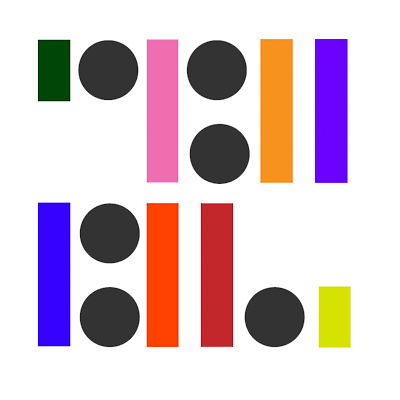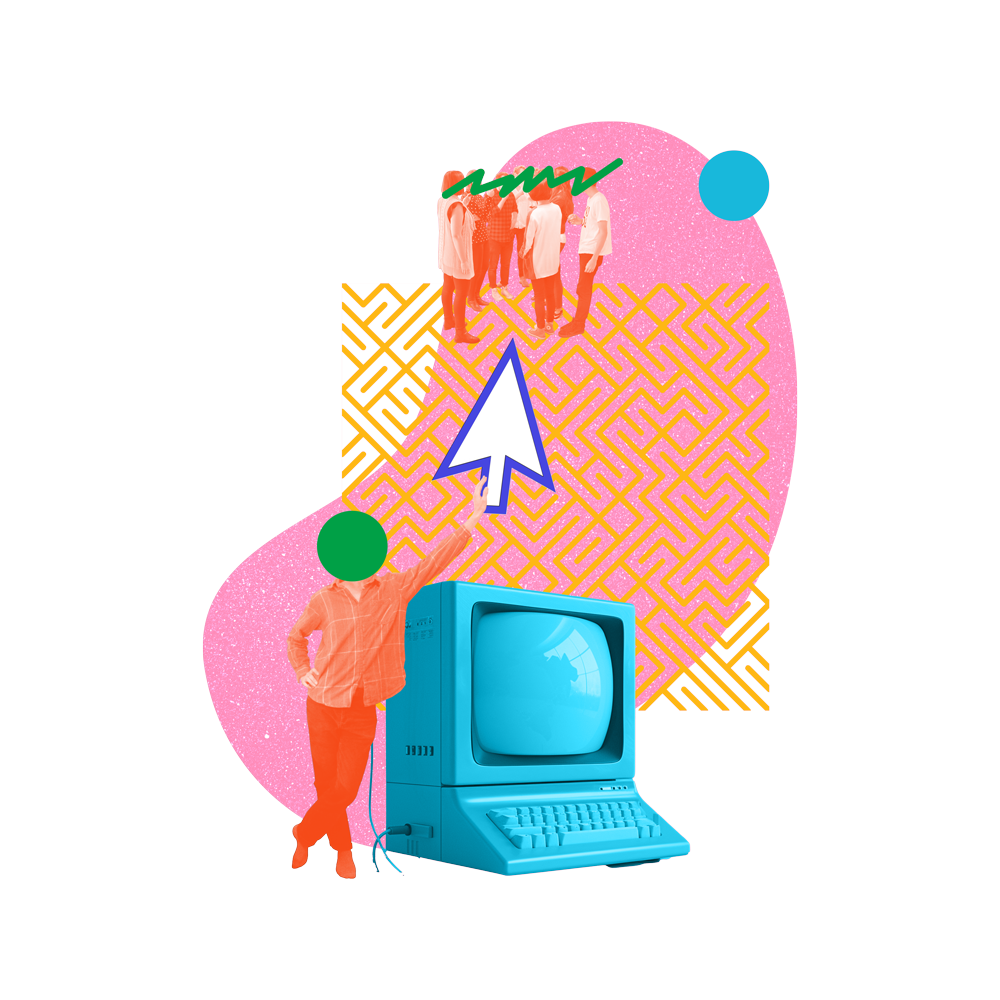ecologies of technology: tools to disconnect/reconnect
How can we disentangle our lives from exploitative digital platforms and create more intentional, sustainable connections with technology, and with each other?
• 26. February - 26. March 2025
• Online!
• Five-weeks, Wednesdays, 8-10 PM CET
• Small class of participants
Artist / Student (Full Time)
€225*
Freelancer
€245*
Professional
€275*
Generous Supporter Ticket
€295*
course
description
The rapid growth of digital technologies and AI has introduced a new and pressing ecological challenge, with far-reaching impacts on the planet, human societies, and more-than-human communities. These systems extract not only energy, minerals, and labor, but also our data and collective well-being. In this course, we’ll investigate the complex ecologies of the platform economy, grounding these seemingly overwhelming issues in our lived experience to uncover ways to navigate, resist, and reimagine them.
Through a blend of discussion, hands-on exploration, and alternative perspectives, we’ll rethink our relationship with technology. Drawing from critiques and creative practices—from neo-luddism to open-source communities—we will explore pathways toward more balanced, intentional, and sustainable ways of engaging with the digital world. This is an opportunity to connect deeply with others, with ourselves, and with the living world around us, as we envision a post-digital future shaped by care and community.
In this course you will learn:
How the internet really works - from programmatic advertising to why Silicon Valley is betting the (troll) farm on AI
An in-depth understanding of the environmental impact of technology
A very different - but practical - view on how we might look at technology and progress
You’ll learn new tools and frameworks for:
Re.evaluating your relationship and technology
How to go offline gracefully
How to create boundaries around your digital and non.digital lives
Tools and strategies for taking your friend and networks to better spaces - online and offline
You’ll also learn practical skills for:
Understanding the environmental impact of your technology
How you can keep your devices working for longer and better
Where you can find tools, resources and communities for low-impact tech
How to trace disinformation and toxic behaviours online
Setting yourself on platforms on the fediverse
course
outline
Week 1: Platform planet: why and how our digital technologies are extracting from us and the planet.
Whether we like it or not, our lives are shaped by platforms, and those platforms are now reshaping our planet. In this session we’ll introduce ourselves to each other - and explore our collective relationship to tech, what we like, what we don’t like - and how we’d like to change it for the better.
We use the term platform all the time, but actually, what is a platform, how do they really work, and why do they have so much power? We’ll explore all these topics, and how the smartphone has become a trillion dollar platform in our pockets, We’ll consider the huge and rapidly growing impact of technology on the planet, and why digital technologies can never be truly sustainable. Through workshop exercise and discussion we’ll look at how we can “disrupt the disruptors” on three levels: in our personal lives, in our networks and communities, and at a systemic level.
Week 2: The Digital Doughnut: what if our technologies were truly sustainable?
The Doughnut Economic Model has been a transformative new way of critically examining our growth-obsessed economy and finding new pathways for sustainability and regeneration. In this session we’ll adapt the Doughnut for the digital world - we’ll work in groups to find Doughnut ways to address our technologies.
We’ll also use systems design approaches to explore a “Four Futures Framework” from the extractive future to which we’re currently headed, to the sustainable future of mitigating harm, and then onwards to consider restorative futures and regenerative futures - and what these might look like for technology. Whichever way we cut it, that almost certainly means radically scaling back our technology infrastructures - but if we did so, would we actually miss anything? We’ll imagine together what these worlds could look like, and how we might get there.
Week 3: How social networks could be more like funghi networks.
This session will be largely mycelium powered, as we navigate through the weird worlds of the disinformation industrial complex, algorithmic discourse and how toxic behaviours metastasize online. There’s a strange toxic loop here; humans are easily fooled by algorithms, and algorithms are easily fooled by humans. This leads us into a spiral of platform toxicity that drives our entire platform - and arguably global - economy.
Fortunately, we can take respite with funghi, who are at root an information network; in fact we could say they are the ultimate social network. In this session we’ll learn why fungi are so much better at regulating attention, countering harms and nurturing all their nodes, than even our networks. We’ll work together to find ways we can apply funghi principles for true social networking.
Week 4: AI unimaginaries
Here we’ll explore how AI is degrading our information ecologies, and accelerating us towards climate chaos. We’ll discuss where AI is taking us, and how we can navigate towards authentically intelligent alternatives. We’ll find out what intelligence could really mean if we consider the many dimensions of knowledge we can readily find in the more-than-human world around us.
Mindful of the carbon impact of most AI tools available to us, we’ll explore what they’re telling us and what they’re not telling us. And while AI technologies are the ultimate manifestation of concentrated power, we’ll explore open source and distributed technologies, and distributed platforms and the fediverse, and how they might offer us a different form of distributed low-impact intelligence.
Week 5: Connection matters
The more we connect online, the more we disconnect from ourselves and the planet. This session will bring together key learnings from the previous weeks so that every participant can create their own map for how to connect to the life and technologies that nurture us, and disconnect from the rest.
In this session we’ll take inspiration from Ivan Illich’s“convivial technologies” - that help us rather then crush us under structures of ineffable power - and we give them a long overdue and highly sympathetic refresh for the digital - and hopefully post-digital - age.
We’ll explore the topics we’ve learned about and place them in a framework of 7 convivial principles: slow down, disconnect/reconnect, declutter and simplify, find the things online that are really worth doing, seek out new better spaces, repair/re-use, do things that really mean something, seek out new convivial spaces
In this final sessions we’ll reflect on what we’ve found on our journey and explore how we’ll need to work together to rediscover a world of less friction, more connection and de-twittered joy.
who is this
class for?
We’d love in this course a diverse mix of people who want to critically explore their - and our - relationship to technology.
It’s a non-technical course, so no prior knowledge is expected. Questioning technologists, artists, researchers, designers, activists would all add hugely to the discussion.
We’d also love people to join who have a particular interest in more-than-human, regenerative and systems-based perspectives. But people who are just curious about those topics, and how they might apply to technology, will have just as much, if not more, to contribute.
about online classes
Classes are 'live' meaning that you can directly interact with the instructor as well as with the other participants from around the world. Classes will also be recorded for playback in case you are unable to attend for any reason. For specific questions, please email us and we'll get back to you as soon as we can.
about
scholarships
We are offering a limited number of reduced fee scholarships for this online class for those facing financial hardships. These allow participants to pay a reduced fee and are reserved for women, BIPOC, and LGBTQ+ who otherwise would be unable to attend. To be considered for one of these scholarships, please use this form.
To apply for a reduced fee scholarship, you must fill in the form no later than one week before the course begins. We will not accept any class sign-ups or scholarship applications after this date, as our regular sign-ups will determine the amount of scholarships we can accommodate. We will notify you shortly thereafter if your application has been approved.
We are a small organisation with no outside funding and like many, we are also in survival mode. We depend on tuition fees for reimbursing class instructers, space fees, and operational costs. We ask you to consider this when applying for a reduced fee scholarship. <3
meet the
instructor
Alistair Alexander
Ethical Sustainable Tech Practitioner
Alistair explores the ecological and socal impact of technologies in workshops, art, research, writing and lots of other hopefully engaging ways. Alistair teaches a seminar on Ecologies of Technology at The Universtiy of Europe for Applied Sciences, and is currently researching regenerative futures for the AI and digital sector wth Bath Spa University. He recently displayed his work Connection Matters at the Invisble Networks exhibition in Berlin.
He has hosted workshops on technology and ecology at re:publica, Mozfest and Floating Universtiy and many other events online and offline. Alistair was one of the first people in Europe to write about China’s - and other countries’ - internet surveillance in the early 2000s. From 2016 to 2020 Alistair led the Glass Room immersive art project on technology, data and privacy with Tactical Tech.

